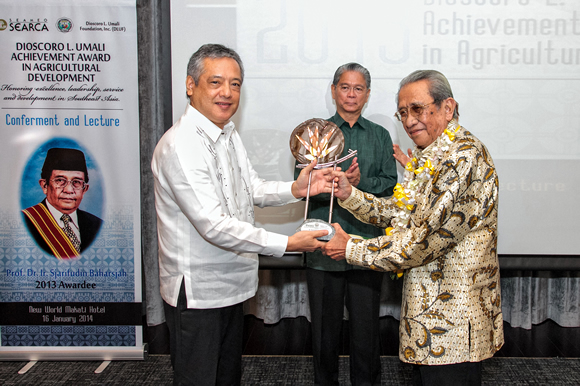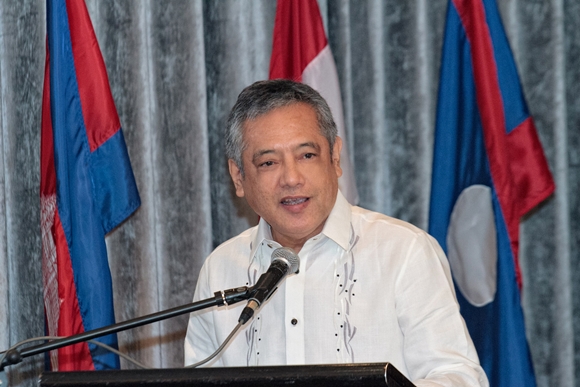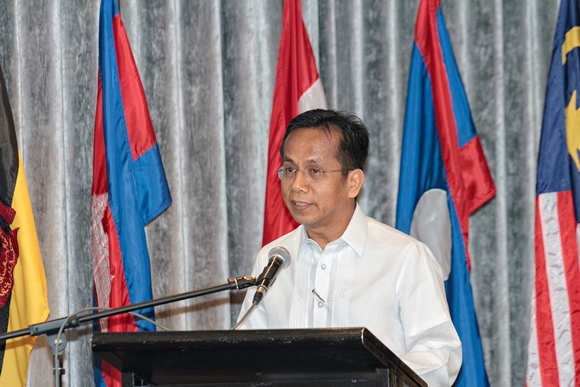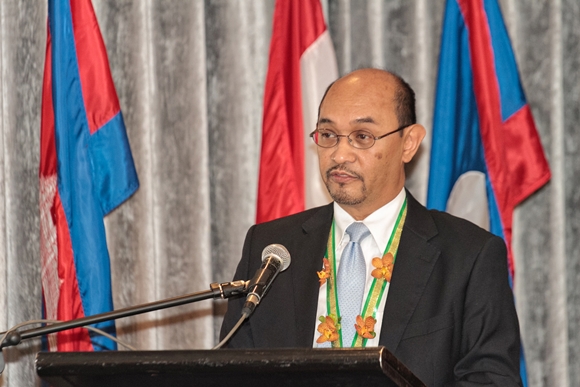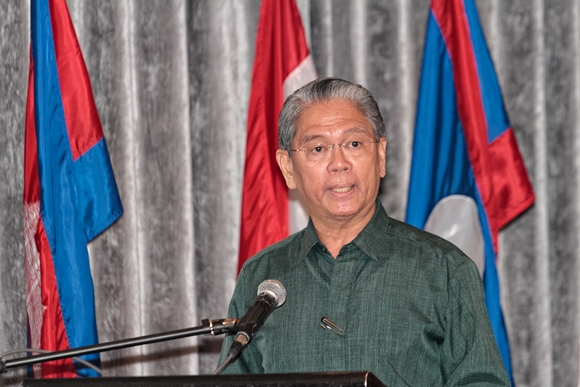Dr. Baharsjah, 80, is recognized for his efforts to promote food security in Indonesia through policies and measures, particularly the agribusiness approach, effectively increasing productivity of rice farms and uplifting the welfare of Indonesian farmers.
He is the first Indonesian and only the fourth to receive the Umali Award, which recognizes lifetime achievements of exemplary individuals who have advanced agricultural development in Southeast Asia.
The Umali Award is a collaboration among the Southeast Asian Regional Center for Graduate Study and Research in Agriculture (SEARCA), the National Academy of Science and Technology (NAST) of the Philippines, and the Dioscoro L. Umali Foundation, Inc. (DLUF).
Dr. Umali was a renowned Filipino agriculture scientist, educator, and institution builder who had immensely advanced agricultural research and development in Southeast Asia. He was a National Scientist and the founding Director of SEARCA.
SEARCA Director Dr. Gil C. Saguiguit, Jr. led the conferment ceremonies and welcomed the guests led by Socioeconomic Planning Secretary and National Economic and Development Authority (NEDA) Director General Arsenio M. Balisacan and Mr. Ade Petranto, Chargé d’Affaires, Embassy of the Republic of Indonesia in the Philippines, who were also among the speakers.
In his welcome remarks, Dr. Saguiguit said that at the institutional level, the Umali Award “projects the face of SEARCA, epitomizing our mandate and objective of promoting ARD in Southeast Asia.”
Dr. Balisacan commended SEARCA, NAST, and DLUF for their continued effort to search for and recognize distinguished individuals who have devoted a good portion of their professional career to the upliftment of the welfare of small farmers who are still the backbone of the rural sector.
The Umali Award “serves as an inspiration to young scientists who I now challenge to pursue their dreams not only for their own personal advancement but also for the benefit of the many,” Dr. Balisacan said.
Mr. Petranto recalled the key posts that Dr. Baharsjah had held, citing his extensive experience as an educator, college administrator, and government official. He said these were only a few of the many fields in which Dr. Baharsjah “has shared his brilliance, competence, and leadership to the people of the Republic of Indonesia and to the rest of the Southeast Asian region.”
“I am honored to express that his achievements serve as strong foundation to the efforts of the Republic of Indonesia for a sustainable and secured supply of the basic staple food for domestic consumption,” Mr. Petranto said.
The Umali Award was presented to Prof. Dr. Baharsjah by Dr. Saguiguit, DLUF President Nelia T. Gonzalez, and NAST President Dr. William G. Padolina, after which he delivered his lecture.
In his lecture titled Dare to Turn Around: An invitation to turn back to farmers as change agents to achieve agricultural success, Prof. Dr. Baharsjah asserts the need for a new agricultural policy in Indonesia that takes into account availability of natural resources and best agricultural practices developed. He advocates the shift from the Green Revolution model that pervades the agriculture sector in his country to the Blue Economy model, which is more suitable for the uplands and other more marginal land type areas. Dr. Baharsjah explained that the Blue Economy as espoused by the distinguished scholar of agricultural development, Gunter Pauli recognizes the key role of farmers as change agents and promotes multiple cropping systems, processing and other value adding products, and ecology-friendly agricultural practices such as zero waste management. He offered seven recommendations, namely: (1) expansion of food production areas from only irrigated to uplands and swamplands, (2) adoption of the principles of Blue Economy, (3) re-orientation of agricultural research focusing on uplands and swampland areas, (4) re-orientation of agricultural extension, (5) re-orientation of government approach to agricultural development, (6) reversing the roles of government and farmers, and (7) allocating development budget to support upland- and swampland-based agriculture.
Dr. Baharsjah was a member of the Board of Trustees of the International Rice Research Institute (IRRI) and the International Food Policy Research Institute (IFPRI). In 2001, he was elected Chairman of the IRRI Board of Trustees. From 1997 to 2001, he served as Independent Chairman of the Food and Agriculture Organization of the United Nations (FAO) Council.
In closing, Dr. Padolina reiterated the need to bear in mind the quality of leadership and vision that Dr. Umali provided in the many different roles that he served in the name of agricultural and rural development and the farmer. He added that “we also remember the other distinguished personages who have been honored to receive this distinguished award. We take pride in all their achievements in this very difficult and complex drama of rural development and food security.”
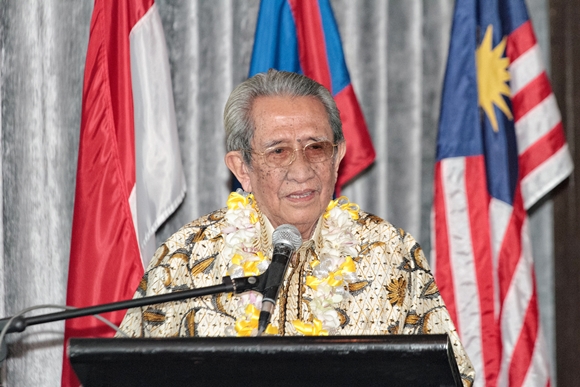
|
|
|
|
|
|
